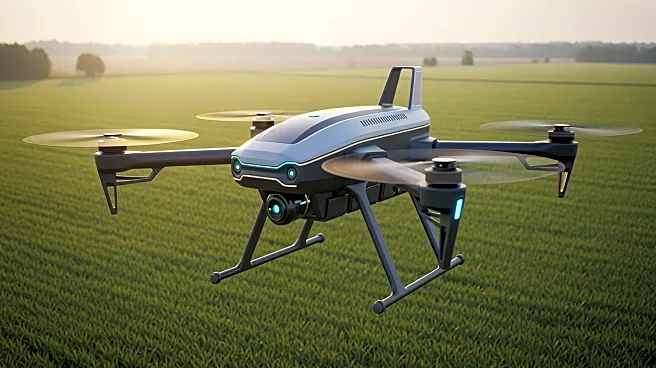What's Happening?
Todd Janzen, managing partner at Janzen Schroeder Ag Law, has raised concerns about the privacy implications of artificial intelligence in agriculture. As AI tools require substantial data for training, Janzen emphasizes the importance of companies licensing
data from farmers who provide this training data. He questions whether AI can uncover insights in farm data that farmers might prefer to keep private. To address these concerns, tools like the Ag Data Transparency Evaluator are available to help the industry develop platforms for secure farm data storage. Janzen advocates for initiatives to protect farmers from potential data misappropriation or unexpected usage by companies.
Why It's Important?
The integration of AI in agriculture presents both opportunities and challenges. While AI can enhance agricultural productivity and efficiency, it also raises significant privacy concerns. Farmers, as primary data providers, may face risks of their data being used in ways they do not anticipate or understand. Developing sound policies around AI usage is crucial to safeguard farmers' interests and ensure ethical data practices. This issue is particularly relevant as AI continues to expand its role in the agricultural sector, potentially affecting data ownership and control.
What's Next?
The agricultural industry may see increased efforts to establish clear policies and guidelines for AI data usage. Stakeholders, including farmers, legal experts, and technology companies, are likely to engage in discussions to balance innovation with privacy protection. The development of robust frameworks for data licensing and transparency could become a priority to ensure that farmers' data rights are respected and that AI tools are used responsibly.
Beyond the Headlines
The ethical implications of AI in agriculture extend beyond privacy concerns. As AI tools become more prevalent, there is a need to consider the long-term impacts on data sovereignty and the potential for AI to reshape traditional farming practices. Ensuring that farmers have a voice in how their data is used and that they benefit from AI advancements is essential for sustainable agricultural development.















